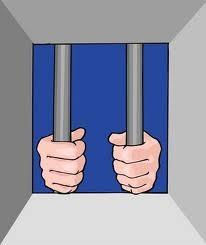It seems to me that being a parent (or carer of children) is rather like the job of a sound engineer. Most of the time nobody even notices the job that you are doing when everything Is going smoothly. But the moment that there’s some flaw or hiccup in the production, everyone becomes conscious that the sound engineer isn’t ‘doing the job properly’. We’ve all experienced those moments when the microphone feedback sends piercing shrieks through the auditorium, or the speaker’s voice is reduced to an inaudible whisper. That’s when we notice the sound engineer.
Likewise, it’s in the moments when something goes wrong with our children that we can feel like all eyes are upon us. And it makes sense that as parents we want to avoid that negative limelight. I’m speaking from experience. My son broke his leg when he was young, and it wasn’t only his pain that upset me, but the disapproving look and not-so-subtle comments from a family member, who gave the message that I hadn’t ‘done my job’. Keeping our children safe is certainly high on the priority list of parents but, as a society, have we become so safety conscious that we deny our children the opportunity to thrive? Are we so focused on keeping our children ‘safe’ that their health and well being has moved to second place?
I’m thinking, for example, of the time when I was about eight years old when I broke my collar-bone climbing a tree in our back garden. I am so glad that my mother did not stop me from climbing trees after that incident! I don’t even remember her telling me to ‘be careful’ once I was able to swing myself back up into my leafy haven. Kids falling out of trees was something that happened from time to time. I doubt if my mother worried that someone would think she was a ‘bad parent’ for letting me climb a tree unsupervised. Climbing trees was seen as something kids do. When I was at the top of the tree in a strong wind, I was a ship captain sailing the wild seas. On calmer days I’d stay still in my overhead lair and watch and listen to the comings and goings of the neighbourhood beneath me. The tree tops were my refuge on days when I felt glum. They were the place where my imagination took flight. They were, without me even realising it, where I developed my sense of balance and spatial awareness. The tree tops were also the place where it was most challenging to keep up with my older sister. I can remember inching along high limbs, quaking with fear, but determined to climb as high as my big sister climbed. This is where I developed tenacity; where I tested my staying powers and my limits. Where I learnt what my body could and couldn’t do.
So my question is, in what ways is our over-safety mindset depriving our children? How is it affecting our children’s health and well-being when we are so focused on safety that we ignore their need to explore, to observe, to adventure, to test their own abilities? We need to think about the message we give to children when we jump in too quickly to ‘keep them safe’.
Perhaps in our well-meaning safety consciousness we are giving messages like:

Don’t ever listen to your body wisdom.
You don’t know how to make decisions.
Let other people to determine what you can’t do.
The world is a dangerous, unsafe place.
In contrast, through my experiences in the tree tops I discovered:
My body knows what it can and can’t do.
I can make decisions. I won’t always get it right but then I’ll know how to do it differently next time.
I know how to keep myself safe.
The world is an amazing place.
Life is an exciting adventure to be lived.
I invite you to think back to your childhood experiences of free play. What are some of your favourite memories? Where did you play? By yourself or with others? Write down at least 5 of the messages you received about life without even realising it. What messages about life and about themselves might your children be absorbing, thorough their play experiences? What messages do you really want them to absorb? So what’s working and what might you choose to do differently? When we are tuned in to our own inner wisdom, we’ll sense when we need to intervene to protect our children, and when to quieten our own anxiety and leave them free to be. I’d love to hear your thoughts and experiences about children’s need for free play. Watch out for my next blog in a couple of days, because I’ll be chatting about how focusing on being a ‘good’ parent can get in the way of achieving what you really want.


No comments yet.